In the world of business, maintaining strong relationships with clients is paramount, but sometimes we stumble. If you find yourself needing to apologize to a client, it's important to do so with sincerity and professionalism. A carefully crafted letter can demonstrate your commitment to making things right and reassure them of your dedication to their needs. So, let's dive into how to create a heartfelt apology that builds trust and keeps the conversation flowing.

Professional Tone
Apologies for any misunderstanding or inconvenience caused during our recent interaction regarding your project. Communication breakdowns can lead to frustration, especially when deadlines (such as the Q4 milestone on December 15, 2023) are at stake. We acknowledge the importance of your needs and concerns, and we value your trust in our services. Our team is committed to rectifying this issue promptly to ensure your satisfaction. We appreciate your understanding and will work diligently to restore your confidence in our partnership.
Acknowledgment of Issue
In the realm of commercial interactions, timely acknowledgment of a client's concerns is paramount for maintaining strong relationships. A situation may arise where service delivery fails to meet established standards, causing dissatisfaction. Such issues may stem from delays in product shipment, inadequate customer support responses, or product malfunctions. For example, if a high-value client in the e-commerce sector experiences a significant shipping delay of over five days for a key order, it becomes crucial to promptly address the oversight. By recognizing the error officially, demonstrating accountability, and expressing genuine regret, businesses can reinforce their commitment to client satisfaction and foster long-term loyalty. This response aims to mitigate negative impressions and reassures clients of the company's dedication to improvement.
Expression of Regret
Apologizing professionally to a client involves acknowledging the issue clearly and expressing genuine remorse. Key elements include the specific incident, its impact on the client, and a commitment to rectify the situation. Effective communication conveys sincerity and a desire to restore the client's trust in the business relationship. For example, an apology could address a missed deadline for a project, emphasizing the original timeline, the client's expectations, and the consequences of not meeting those expectations, such as potential financial implications or disruptions to the client's operations. Reinforcing a plan for improvement, such as implementing new internal processes, can demonstrate dedication to preventing future occurrences.
Solution or Compensation Offered
In the rapidly evolving landscape of customer relations, addressing grievances promptly is essential for maintaining strong client partnerships. Apologies should extend beyond mere acknowledgment of mistakes, such as missed deadlines or service discrepancies, and include practical resolutions. Companies can enhance client satisfaction by offering solutions like a complimentary service, a discount on future purchases, or expedited shipping on delayed orders. These compensatory actions not only demonstrate accountability but also foster trust, crucial in cities like New York and Los Angeles, where competitive markets necessitate impeccable service standards. Ensuring communication channels remain open post-resolution is vital to prevent future issues, reinforcing the commitment to excellence that clients expect from reputable businesses.
Assurance of Future Improvements
Apologies to clients can impact business relationships significantly. Acknowledging mistakes is essential for maintaining trust. Clear communication expressing regret and outlining specific steps for future improvements is important. Clients appreciate transparency and assurance. Offering a personal follow-up shows dedication to client satisfaction. Emphasizing commitment to high-quality service fosters loyalty. Implementing feedback mechanisms enhances client relations. Future outreach can ensure clients feel valued and heard. Consistent follow-ups after addressing concerns build stronger connections. Trust is essential for long-term success in client partnerships.

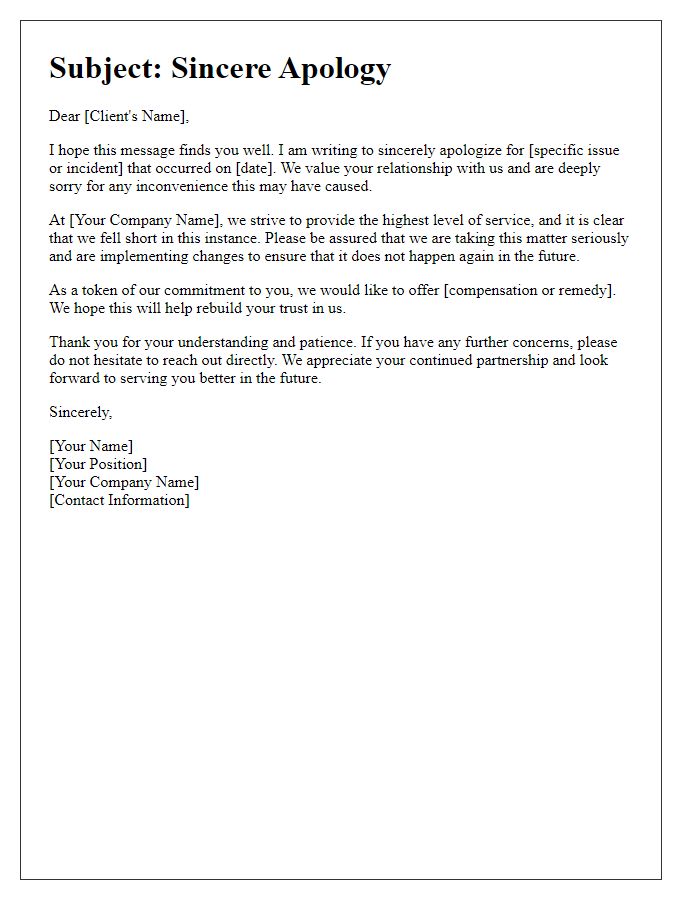
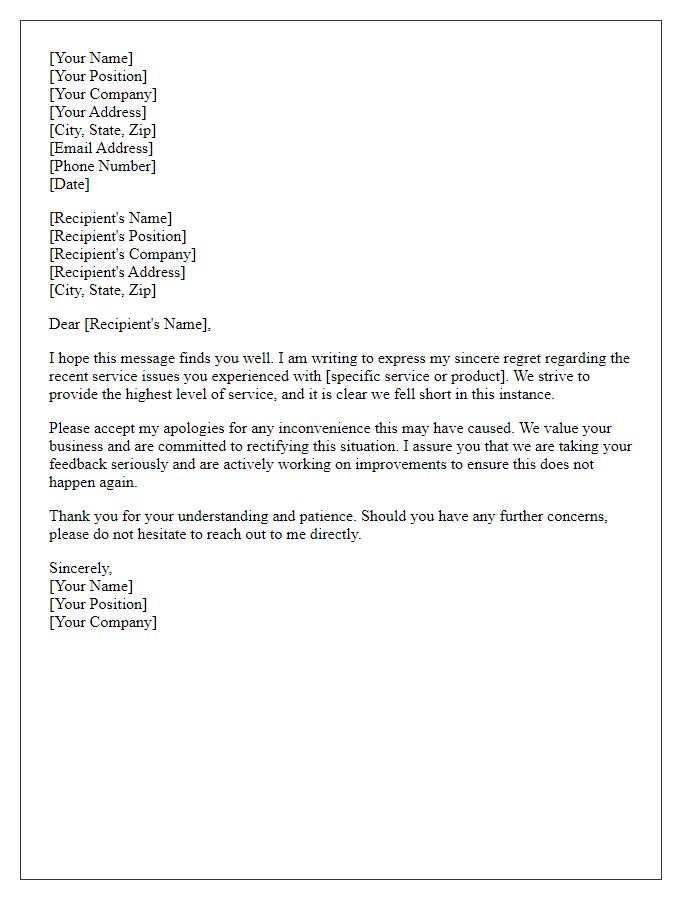
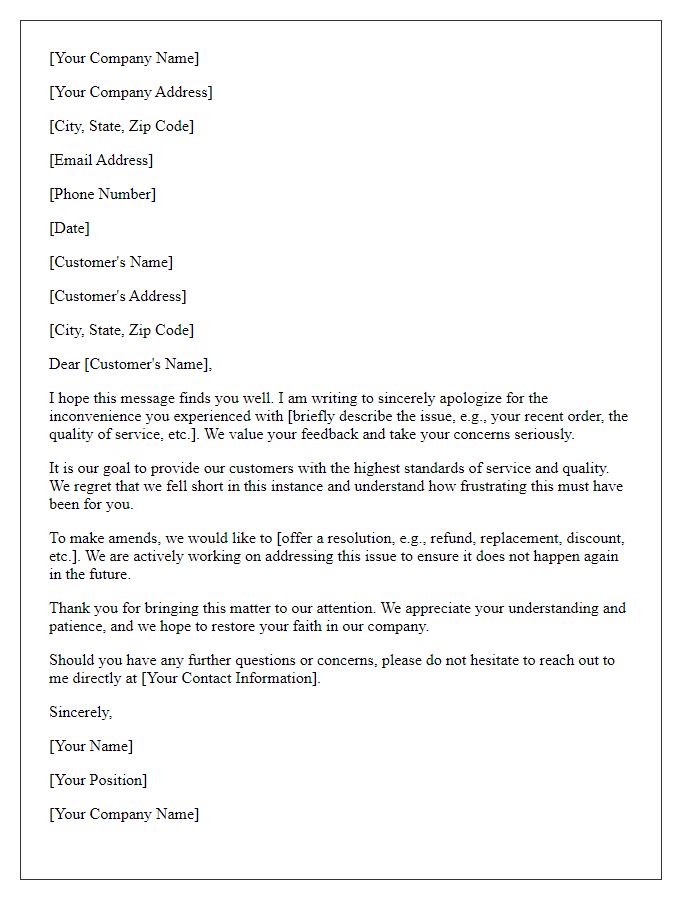
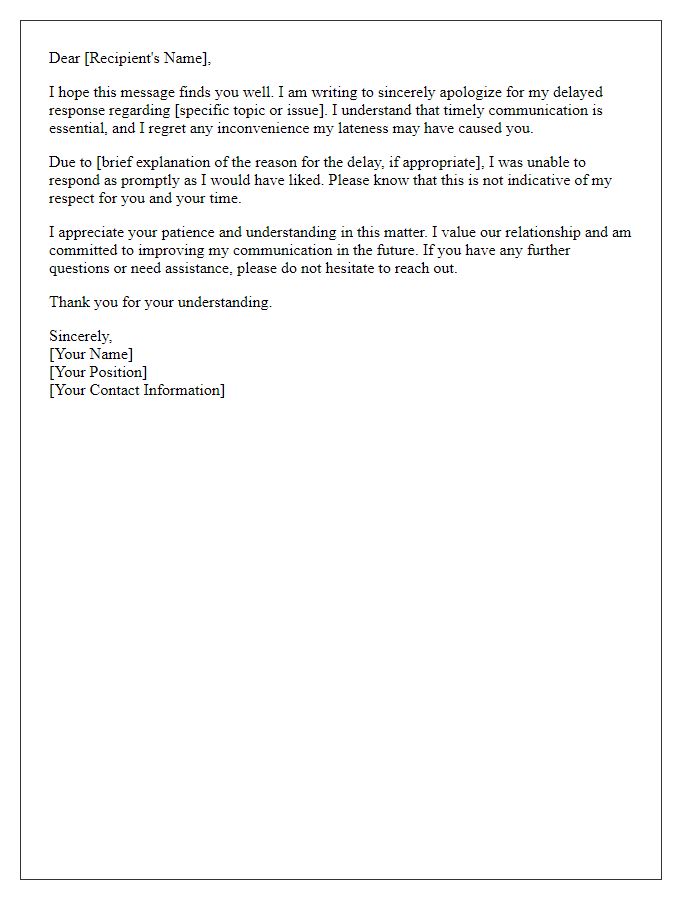
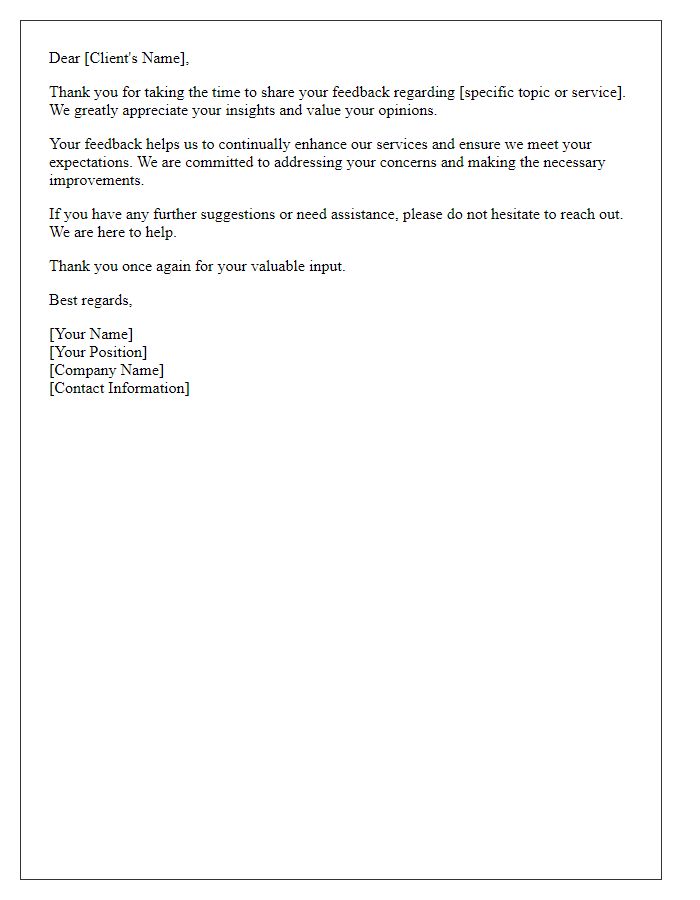
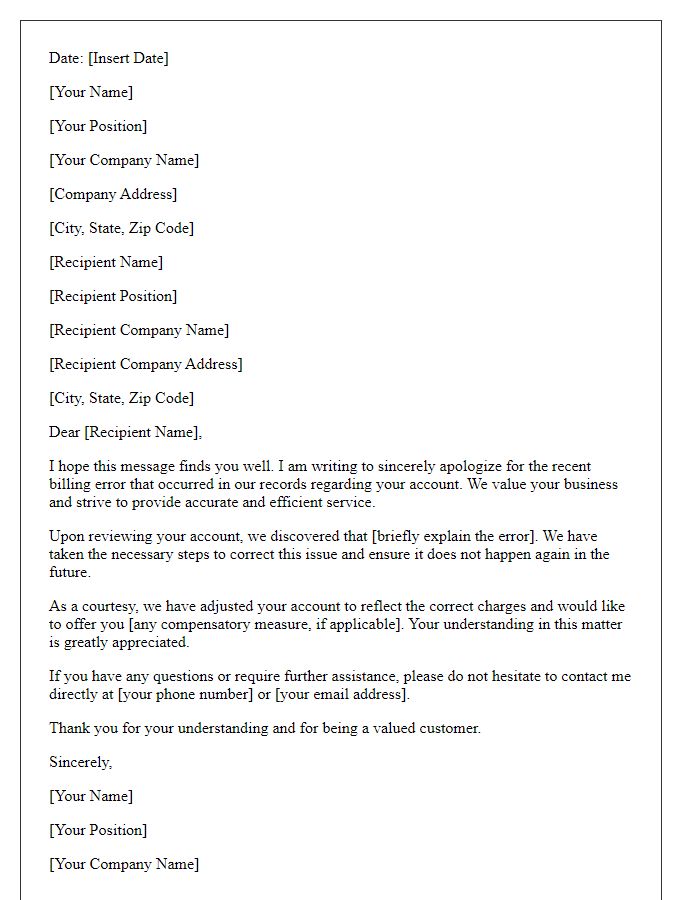
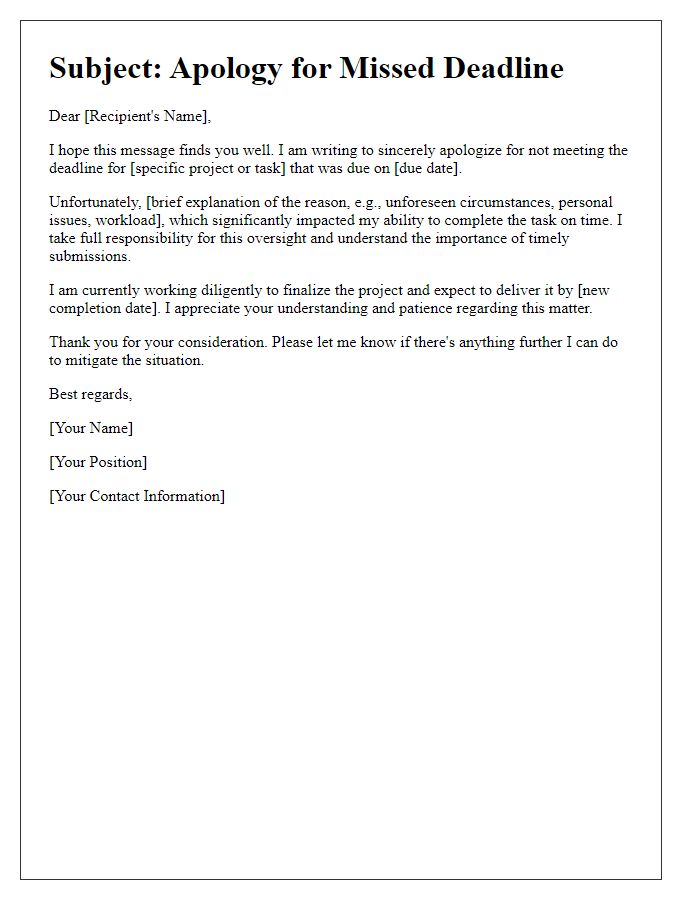
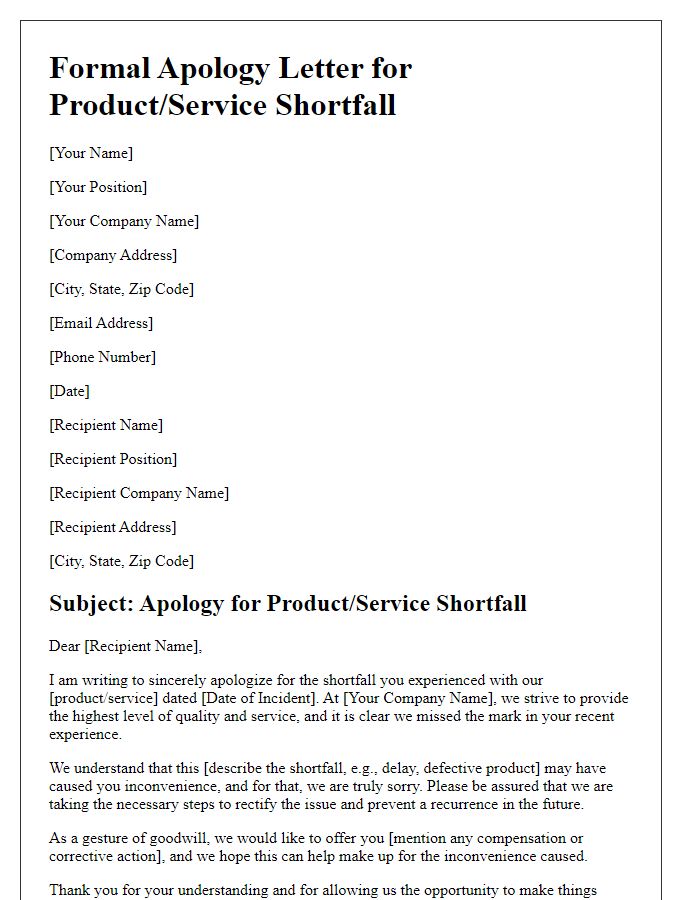
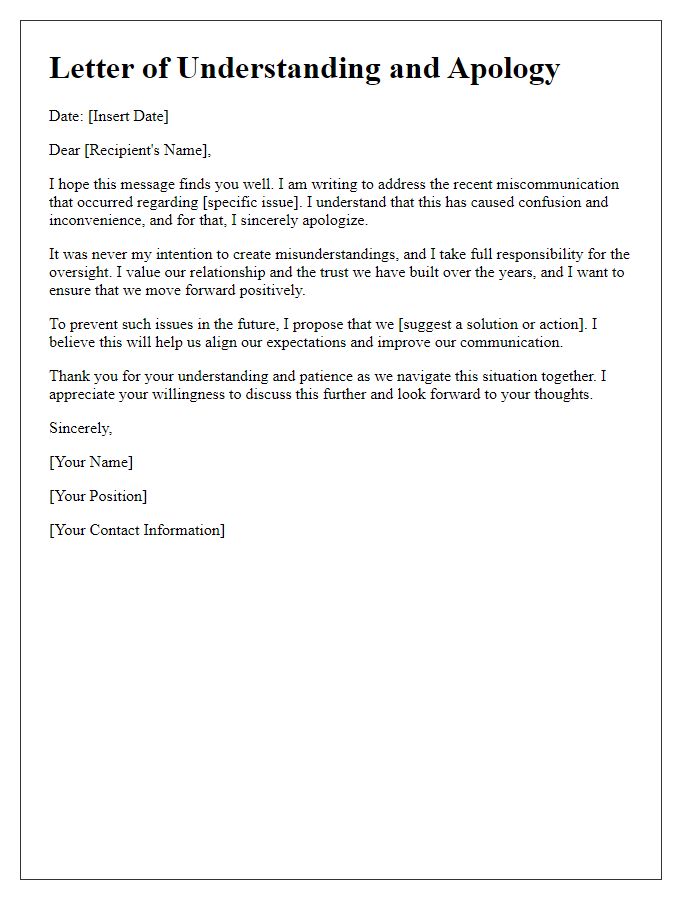
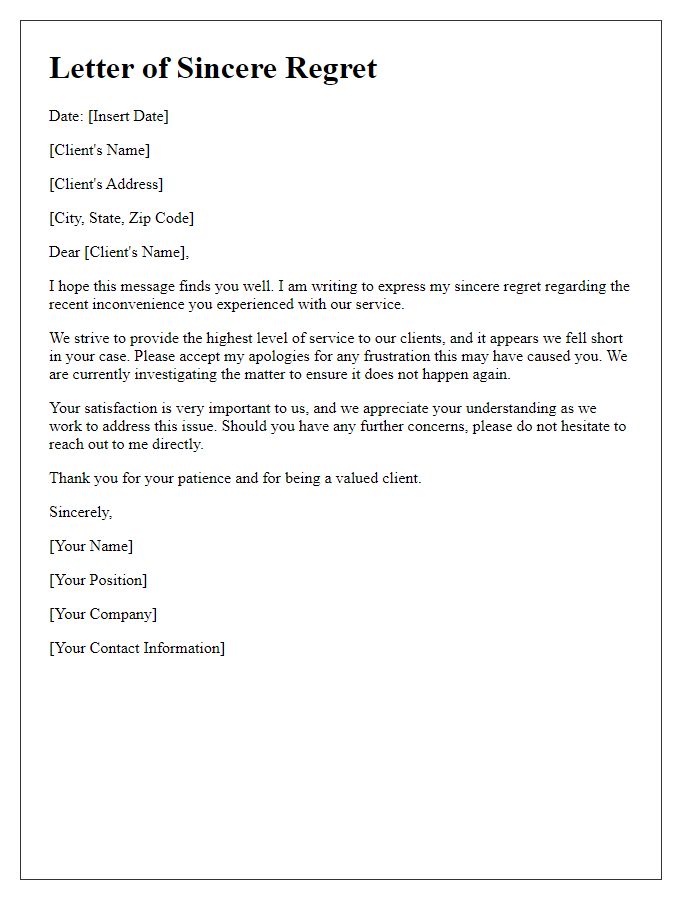

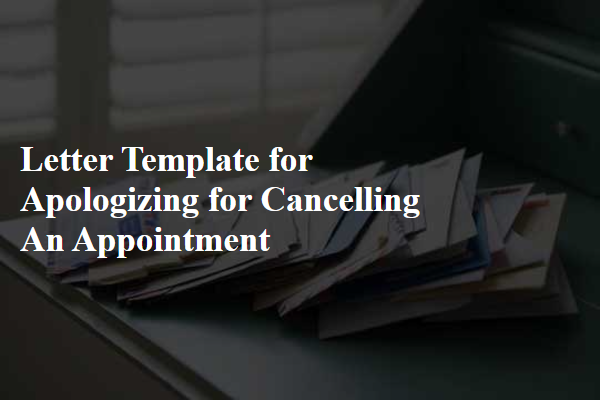
Comments